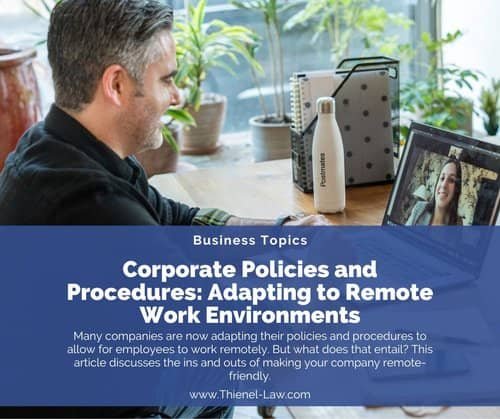[2021 UPDATE] Digital Assets - Erasing Your Digital Footprint When You Die
Managing digital afterlife has become an important part of estate planning. Besides planning for transferring digital assets, many individuals are also concerned about the legacy of their digital footprint after death. Experienced Maryland-estate planning attorneys should be able to discuss how to manage your digital assets in relation to your estate planning goals, and how to erase your digital footprint when you die.
Transferring Your Digital Assets After Your Death
Most people assume digital assets are limited to bitcoin accounts or online financial accounts. However, your digital assets also encompass any account used to create or maintain an online presence.
Digital Assets Can Include Things Like:
Social media accounts
Blogs
Cloud accounts
Online bank accounts
Photo and video storage accounts
Online shopping accounts
Financial accounts, such as PayPal accounts, brokerage accounts, and freelance accounts (i.e. Upwork, Crowd Content, etc.)
Email accounts
Online bill payment accounts
Other websites that store your financial information
Your digital assets also encompass any account used to create or maintain an online presence.
Are you able to appoint a POD or beneficiary for the account? Can you designate a fiduciary to access and control the account after your death? It is up to you to read the terms for your online accounts to understand how each account should be handled after your death. While some accounts may not discuss what happens to the account after your death, they may state what happens after a prolonged period of inactivity.
What is Needed to Manage Your Digital Footprint After Your Death?
Like your tangible estate, your online presence will require management after your passing. Because online accounts cover the spectrum from personal to financial, and often contain private information, it’s important to treat them separately from the rest of your estate.
Identify your online executor(s) in your will.
Detail what actions your online executor will need to execute regarding managing, memorializing, archiving, or deleting your online accounts.
Avoid listing logins and passwords in your will or public records.
Maintain records of your online accounts, with access codes and passwords in a separate, safe location accessible by your online executor after your death.
Considerations When Selecting an Online Executor
The person you trust with your online information may not be the same person you select to oversee your tangible estate, nor does it have to be. There are several factors to consider when appointing someone to oversee your online accounts after your death. When deciding who to name as your online executor, you will want to appoint someone who is generally:
tech-savvy
skilled using the internet
comfortable navigating social media
detail oriented and organized
diplomatic and patient when conducting business
understanding of your wishes
Additional considerations will be guided by the type of digital assets to be managed. For instance, do you have primarily social media accounts, or is your digital footprint mostly financial or business-related? Depending on the mix of your online presence, you may appoint more than one person to manage your digital information.
Social Media
Online personal property can be very sensitive. Your online executor will likely gain access to photos, videos, and past correspondence. Select someone you trust to safeguard your relationships and personal information, such as a close friend or family member.
Financial
Often, tangible and financial assets are closely linked. Besides selecting someone financially and tech-savvy, you will want someone who will work cooperatively with your estate executor.
Business
If you run an online business, or have a large digital business footprint, it makes sense that someone with intimate knowledge of your business dealings be designated to resolve your digital presence. A colleague, partner, or business mentor may all prove viable options.
As with your financial online accounts, there is bound to be a lot of cross-over between your online business presence and your tangible estate. Name multiple persons who can work together or a sole, qualified executor to manage both your tangible and online financial affairs after your death.
Accounts that Do Not Allow for Fiduciary Appointments During Lifetime
Some accounts may not give you the option of assigning someone to handle the account after your death. Therefore, make provisions in your will and estate plan to name an executor for these accounts.
Digital assets can be difficult and challenging to handle in an estate plan. Each account has a separate login and password. You do not want to place sensitive information in your will. However, you need to create a master list of accounts, logins, and passwords that your fiduciary can use to manage, transfer, or delete your digital life. When making your list, include information such as:
a complete list of all online accounts, including all electronic hardware used to access and store information about the accounts (i.e. laptop, tablet, cell phones, cameras, computers, flash drives, etc.)
logins and passwords for each account
whether the account has a POD, beneficiary, or fiduciary appointed and the name of that person
all software used to store information about your online accounts and assets, including where the software is stored and what data the software contains (i.e. account numbers, logins, passwords, balances, etc.)
how you want each account or asset treated. For example, do you want your Facebook account to be maintained, memorialized, or deleted?
Store this information in a secure format i.e., a flash drive or hard copy. Update the information often, keep the information secure, and ensure that the person you designate to retrieve the information has access to the location.
As an example, if you place the information in a safety deposit box, your personal representative appointed in your will may access the box, but the person you wish to manage your digital accounts may not have access to the box after your death. State in your will that your personal representative should retrieve the information from your safety deposit box and turn it over to the person you choose to manage your digital footprint. Remember that your personal representative is the only person with authority to transfer assets, such as financial accounts and digital currency unless otherwise ordered by the court.
The key is to update the information often, keep the information secure, and ensure that the person you designate to retrieve the information has access to the location.
How to Maintain Your Privacy After Your Death
Everyone deserves to maintain their privacy, even after their death. However, what you place online may never be truly private.
The average person has over 100 online accounts, including financial, social media, communication, and entertainment accounts. If you are concerned about your personal privacy, it’s a good idea to take steps now toward managing your digital footprint, particularly social media accounts.
Many social media platforms offer legacy and memorialization features. The benefit of enabling
available legacy features during your lifetime is that you are detailing what social media information can be accessed after your death, and whether your accounts will be managed, memorialized, or deleted.
Google allows you to name a “trusted contact” to access and make decisions regarding your account after a prolonged period of inactivity or upon your death.
Instagram will allow an account to be deleted or memorialized upon verification of the account holder’s death. The request will need to be made by a person who can prove authority to request the change, and who can provide the death certificate and birth certificate of the decedent.
Facebook offers a legacy feature, which allows a designated person to manage your account once it has been memorialized after your death. There is also an option to pre-request your account be deleted once Facebook has been notified of your passing.
LinkedIn will remove your profile once it has been notified of your death through completion of their profile removal form.
Naming a trusted, social media contact is part of a comprehensive approach to protecting your privacy and managing your online accounts after death. Ultimately, it is up to you how you want to handle your digital footprint during your lifetime. Investing time now is the best option toward having your wishes fulfilled.
Regularly delete old and unused accounts, as well as histories.
Appoint a trusted individual to manage your online accounts.
Provide the information needed to transfer or manage your accounts.
Leave detailed instructions for your online executor to access your digital assets.
Ask a Maryland Estate-Planning Attorney for Help
Because of the issues related to digital assets, many states have enacted laws to dictate how online accounts are managed after a person’s death. There are also federal laws that may apply to some digital assets. Working with an experienced Maryland-estate planning attorney can help ensure that your will and other estate planning documents contain provisions for digital assets that comply with any applicable laws. An attorney can also help you make sure that the steps you have taken in your estate plan to protect your digital assets will accomplish your wishes and goals. Contact Thienel Law today. Maryland estate-planning attorney Steve Thienel is dedicated to assisting clients in Maryland, Virginia, and throughout the DC Metro area.
Related







